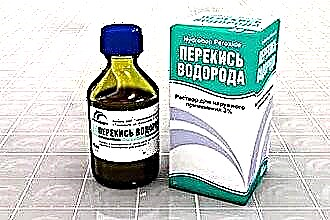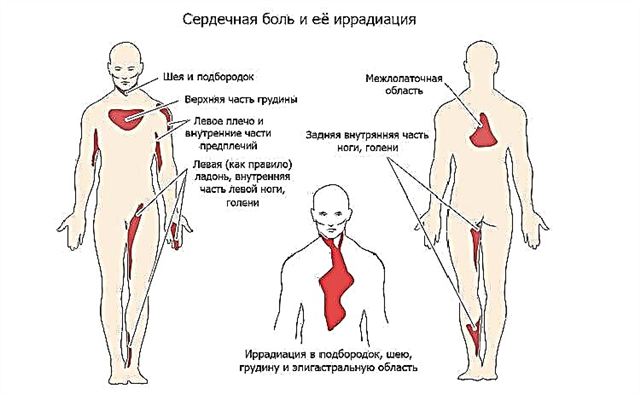A dry cough is unpleasant in that it leads to a strong tension of the vocal cords, during attacks, it literally "tears the throat", forcing to experience extremely unpleasant sensations. In this case, the sputum is not coughing up or its amount is very small. Therefore, doctors call such a cough unproductive. Many people think that expectorants for dry coughs will quickly improve the situation, but this is not always the case.
Cough reasons
In fact, it all depends on the reason for the cough. After all, a cough is only a symptom, a reflex reaction of the body to external or internal stimuli. And if you independently take an expectorant that stimulates the cough center, then with some diseases you can provoke a severe attack of coughing and even pulmonary or stomach bleeding.
The main causes of a dry, barking cough are:
 ARI, ARVI, colds. Cough is typical for the initial stage of the disease. It is usually accompanied by a runny nose, fever, chills, joint and headaches. The use of expectorants in the early days of the disease is useless, it will only intensify the cough. Better to use antiviral and antitussive drugs. People with a fairly strong immune system cope with the disease in 2-3 days using proven folk methods. But if the cough is replaced by a wet one, and the disease develops, it will be the turn of the expectorants.
ARI, ARVI, colds. Cough is typical for the initial stage of the disease. It is usually accompanied by a runny nose, fever, chills, joint and headaches. The use of expectorants in the early days of the disease is useless, it will only intensify the cough. Better to use antiviral and antitussive drugs. People with a fairly strong immune system cope with the disease in 2-3 days using proven folk methods. But if the cough is replaced by a wet one, and the disease develops, it will be the turn of the expectorants.- Pleurisy. Inflammation of the pulmonary pleura, accompanied by excruciating coughing fits with chest pain. If fluid accumulates in the lungs, the cough may be moist, with minimal sputum production. The temperature usually does not rise much, but shortness of breath is noticeable, which occurs even with slow walking. Expectorants are contraindicated, the disease should be treated by a doctor using antibacterial, anti-inflammatory and tonic drugs.
- SARS. Serious pulmonary disease of a viral nature, which is not fully understood. Treatment in each case is individual, as the symptoms can be very different. Usually accompanied by a dry cough, gradually turning into a moist one, but the phlegm is thick and does not cough up. Expectorants are prescribed symptomatically.
- Sore throat: pharyngitis, laryngitis, tracheitis. It is more successfully treated with antibiotics (if it is of an infectious nature) or antitussive drugs, as it proceeds with severe redness and inflammation of the mucous membranes of the throat. Additional stimulation of the cough increases painful sensations and leads to overstrain of the vocal cords.
- Measles. It is easy to recognize by the characteristic red rash against the background of a very high temperature and a painful dry cough. The disease is accompanied by a runny nose, in which mucus constantly flows down the back wall of the larynx, irritating it. For treatment, antiviral, anti-inflammatory and mucolytic drugs are used.
- Bronchial asthma. A serious medical condition in which a coughing fit can cause a choking sensation. Taking expectorant drugs that increase the secretion of phlegm can lead to the fact that a person begins to literally choke on his own mucus. As part of complex therapy, bronchodilators are used, but this can be done only as directed by a doctor and with strict adherence to the dosage.
 Sinusitis and rhinitis. Diseases characterized by inflammation of the mucous membranes of the nose and / or paranasal sinuses. Often, abundant purulent discharge accumulates in them, which, not finding a way out, flow into the throat, irritating the larynx and causing a feeling of constant perspiration and dry cough. Coughing drugs are useless. You can get rid of the problem only by eliminating the underlying disease.
Sinusitis and rhinitis. Diseases characterized by inflammation of the mucous membranes of the nose and / or paranasal sinuses. Often, abundant purulent discharge accumulates in them, which, not finding a way out, flow into the throat, irritating the larynx and causing a feeling of constant perspiration and dry cough. Coughing drugs are useless. You can get rid of the problem only by eliminating the underlying disease.- Oncology. One of the worst causes that provokes a dry cough, not accompanied by symptoms characteristic of other respiratory diseases. Oncology can be suspected by traces or blood clots in the mucus, a deterioration in general condition, a sudden decrease in immunity and weight loss. The sooner the disease is diagnosed, the greater the chances of a quick recovery, so a visit to the doctor in this case should not be postponed. Treatment with coughs is useless.
- Severe allergies. Allergic reactions are characterized by an attack of dry barking cough with severe swelling of the mucous membranes, profuse snot and lachrymation. Expectorant drugs will not help in this case either. Here antihistamines are needed that can quickly stop coughing, reduce swelling and mucous discharge.
- Worms. Sometimes they can settle in the lungs, constantly irritating them and provoking a dry cough. It is rather difficult to determine their presence; this can be done only with a diagnostic examination. Coughing up drugs do not help, but can only intensify coughing attacks. Anthelmintic drugs and agents are needed that neutralize toxins formed during the decomposition of dead parasites.
- External irritants: too dry air, strong odors, tobacco smoke, polluted air, a foreign body. They provoke a reflex cough, with the help of which the body tries to clear the airways. To get rid of a cough, it is usually enough to eliminate the negative effect. It makes sense to use coughing drugs only if the exposure was prolonged and thick contaminated mucus has accumulated in the lungs or bronchi (for example, when smoking or professional coughing).
 Reflux disease. The cough starts from the constant throwing of stomach contents into the esophagus. The mucous membranes of the esophagus become irritated and provoke a cough, which increases with the adoption of a horizontal position of the body. Expectorant drugs can only make the problem worse. The disease should be treated by a gastroenterologist, and the cough will disappear after recovery.
Reflux disease. The cough starts from the constant throwing of stomach contents into the esophagus. The mucous membranes of the esophagus become irritated and provoke a cough, which increases with the adoption of a horizontal position of the body. Expectorant drugs can only make the problem worse. The disease should be treated by a gastroenterologist, and the cough will disappear after recovery.- Taking medications. Coughing as a side effect of medication is not uncommon. Most often it is provoked by ACE inhibitors, some heart and antihypertensive drugs. It is not worth treating such a cough with expectorants. It usually goes away on its own after completing the course of medication.
As you can see, coughs are not always helpful. Therefore, you can use them without a doctor's recommendation only if you are sure that you know the cause of the cough and the drugs cannot harm you. If there is even the slightest doubt, it is better to consult with a specialist.
Effective remedies
What expectorant drugs to take for dry cough also depends on why sputum discharge is difficult. If it is too thick and viscous, you need a product that can change its consistency. With bronchitis and pneumonia, you may need a drug that stimulates the smooth muscles of the bronchi and enhances the mobility of the villi lining them.
Therefore, when buying a medicine, it is better, at least, to consult with a pharmacist, describing to him the nature of the cough.
Here is a list of the most popular and effective expectorants that can relieve the worst dry cough in 2-3 days:
- "Sinekod". The combined drug, which inhibits the activity of the cough center, acts as an anti-inflammatory and at the same time stimulates the bronchi to remove sputum. Contains codelac, therefore it is categorically contraindicated during pregnancy and breastfeeding.
 "Bronholitin" and its analogues "Bronchikum", "Bronhosan", etc.Relieve bronchospasm, facilitate breathing, eliminate swelling of the mucous membranes. "Bronholitin" contains a substance that acts on the cough center, relieves coughing attacks. Not prescribed for pregnant women and children under 3 years of age.
"Bronholitin" and its analogues "Bronchikum", "Bronhosan", etc.Relieve bronchospasm, facilitate breathing, eliminate swelling of the mucous membranes. "Bronholitin" contains a substance that acts on the cough center, relieves coughing attacks. Not prescribed for pregnant women and children under 3 years of age.- "Herbion" or plantain syrup. The extract of this plant has a pronounced anti-inflammatory effect, quickly relieves irritation of the mucous membranes and sore throat, has a pronounced expectorant effect, perfectly softens a sharp dry cough. The drug is completely natural. Of the contraindications, only individual intolerance and diabetes mellitus.
- Libeksin. A complex drug with an antitussive and bronchodilatory effect. Contains an anesthetic, thanks to which it relieves sore throat very quickly. It expands the bronchi, makes breathing easier, but has a number of contraindications, the main of which is pregnancy.
- "Stopussin". A mucolytic drug that perfectly dilutes phlegm and dilates the bronchi, making it easier to pass. Quickly relieves pain and sore throat. It is prescribed for children from one year old and for adults. Available in several forms.
The list is far from complete. These are only the TOP 5 available and effective remedies for dry cough treatment. There are more than a hundred of them on the market. This is why it is so difficult to figure them out on your own.
It often happens that an expensive advertised product is a complete analogue of a cheap drug that works just as effectively.
Traditional methods
But it is not always worth running to the pharmacy with a dry cough. Folk remedies, proven over centuries, work no less effectively, most of which are easy to find in every home. When using them, sputum begins to cough up a little later than after potent pharmaceutical drugs, but there are no contraindications - you can be treated even during pregnancy.
Here are some great folk recipes:
- Milk with soda. A glass of warm milk with a pinch of baking soda (or maybe with the addition of a teaspoon of honey) perfectly warms up the throat, restores damaged mucous membranes, and soothes pain. Drank before bedtime, it will make it possible to fall asleep quickly.
 Kalina with honey. Acts anti-inflammatory, facilitates coughing, restores immunity. Boil a glass of fresh or dried berries for 10 minutes over low heat in a liter of water, let it brew until it cools to room temperature. Then strain and stir half a glass of quality honey in the broth. The resulting syrup drink half a glass of warm 3-4 times a day.
Kalina with honey. Acts anti-inflammatory, facilitates coughing, restores immunity. Boil a glass of fresh or dried berries for 10 minutes over low heat in a liter of water, let it brew until it cools to room temperature. Then strain and stir half a glass of quality honey in the broth. The resulting syrup drink half a glass of warm 3-4 times a day.- Banana milk. In addition to being useful, it is also very nutritious, so the remedy is not recommended for diabetics and those who are overweight. But for children and people weakened after an illness, this is just what you need. Peel two ripe bananas, break into pieces and pour in a glass of milk, simmer for 5 minutes over low heat and beat everything with a blender. You can drink this cocktail in two steps.
- Cabbage juice. Freshly squeezed cabbage juice contains a huge amount of potassium and vitamin C, working as a powerful immunomodulator. At the same time, it helps to thin the phlegm and soften the cough. For taste, you can add a little honey to it. Take a teaspoon every 2-3 hours.
- Cacao butter. Perfectly softens cough, quickly restores damaged mucous membranes and relieves sore throat. Dissolved in warm milk, it creates a strong protective film on the mucous membrane, which can last up to several hours. If you drink this drink at night, it will ensure a restful sleep almost until the morning.
Decoctions of medicinal herbs, which can be substituted for tea during illness, also have an excellent expectorant effect. Soda and potato inhalations, warming ointments with essential oils, badger and goat fat are useful.
But if you decide to fight dry cough yourself at home, you need to monitor your condition all the time. With proper home treatment, the body temperature does not rise above 37.5OC and expectorant effect appears already on the 3-4th day. If this does not happen, it is necessary to consult a doctor to avoid possible complications.

 ARI, ARVI, colds. Cough is typical for the initial stage of the disease. It is usually accompanied by a runny nose, fever, chills, joint and headaches. The use of expectorants in the early days of the disease is useless, it will only intensify the cough. Better to use antiviral and antitussive drugs. People with a fairly strong immune system cope with the disease in 2-3 days using proven folk methods. But if the cough is replaced by a wet one, and the disease develops, it will be the turn of the expectorants.
ARI, ARVI, colds. Cough is typical for the initial stage of the disease. It is usually accompanied by a runny nose, fever, chills, joint and headaches. The use of expectorants in the early days of the disease is useless, it will only intensify the cough. Better to use antiviral and antitussive drugs. People with a fairly strong immune system cope with the disease in 2-3 days using proven folk methods. But if the cough is replaced by a wet one, and the disease develops, it will be the turn of the expectorants. Sinusitis and rhinitis. Diseases characterized by inflammation of the mucous membranes of the nose and / or paranasal sinuses. Often, abundant purulent discharge accumulates in them, which, not finding a way out, flow into the throat, irritating the larynx and causing a feeling of constant perspiration and dry cough. Coughing drugs are useless. You can get rid of the problem only by eliminating the underlying disease.
Sinusitis and rhinitis. Diseases characterized by inflammation of the mucous membranes of the nose and / or paranasal sinuses. Often, abundant purulent discharge accumulates in them, which, not finding a way out, flow into the throat, irritating the larynx and causing a feeling of constant perspiration and dry cough. Coughing drugs are useless. You can get rid of the problem only by eliminating the underlying disease. Reflux disease. The cough starts from the constant throwing of stomach contents into the esophagus. The mucous membranes of the esophagus become irritated and provoke a cough, which increases with the adoption of a horizontal position of the body. Expectorant drugs can only make the problem worse. The disease should be treated by a gastroenterologist, and the cough will disappear after recovery.
Reflux disease. The cough starts from the constant throwing of stomach contents into the esophagus. The mucous membranes of the esophagus become irritated and provoke a cough, which increases with the adoption of a horizontal position of the body. Expectorant drugs can only make the problem worse. The disease should be treated by a gastroenterologist, and the cough will disappear after recovery. "Bronholitin" and its analogues "Bronchikum", "Bronhosan", etc.Relieve bronchospasm, facilitate breathing, eliminate swelling of the mucous membranes. "Bronholitin" contains a substance that acts on the cough center, relieves coughing attacks. Not prescribed for pregnant women and children under 3 years of age.
"Bronholitin" and its analogues "Bronchikum", "Bronhosan", etc.Relieve bronchospasm, facilitate breathing, eliminate swelling of the mucous membranes. "Bronholitin" contains a substance that acts on the cough center, relieves coughing attacks. Not prescribed for pregnant women and children under 3 years of age. Kalina with honey. Acts anti-inflammatory, facilitates coughing, restores immunity. Boil a glass of fresh or dried berries for 10 minutes over low heat in a liter of water, let it brew until it cools to room temperature. Then strain and stir half a glass of quality honey in the broth. The resulting syrup drink half a glass of warm 3-4 times a day.
Kalina with honey. Acts anti-inflammatory, facilitates coughing, restores immunity. Boil a glass of fresh or dried berries for 10 minutes over low heat in a liter of water, let it brew until it cools to room temperature. Then strain and stir half a glass of quality honey in the broth. The resulting syrup drink half a glass of warm 3-4 times a day.

